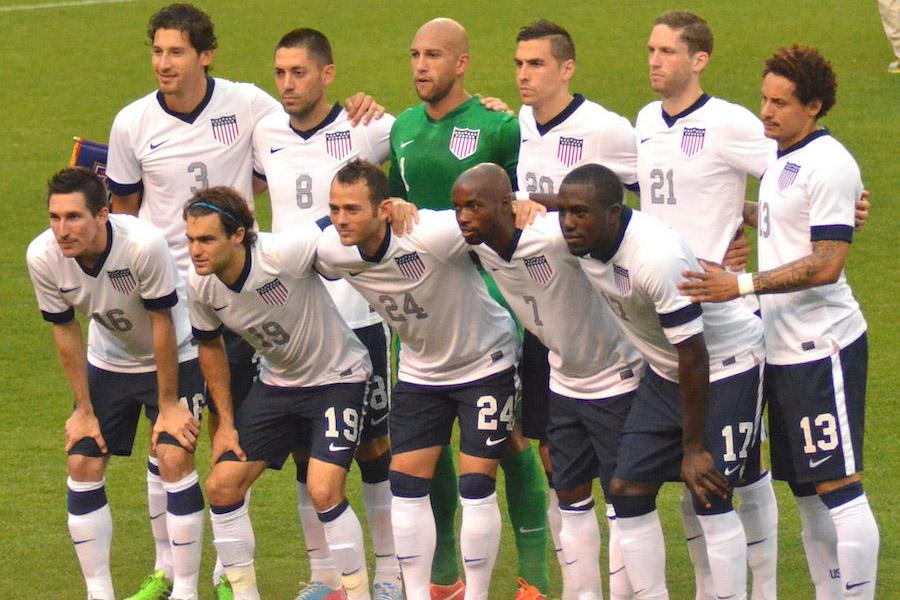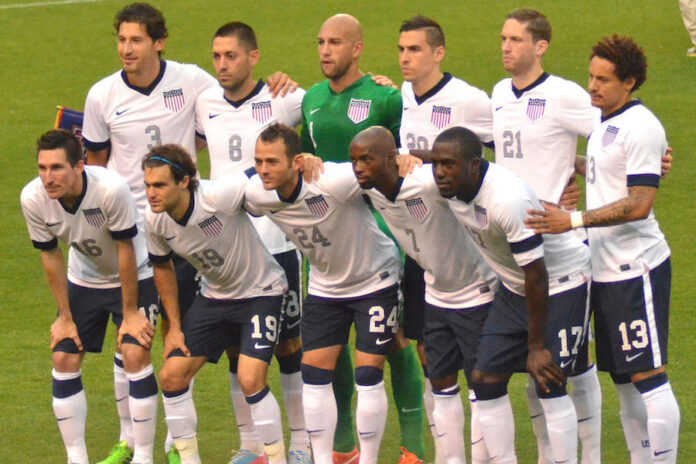
 If you missed the final whistle amid all the natural disaster coverage and political scandals, the U.S. men’s national soccer team lost in devastating fashion to a set of 11 players from a country many Americans would have trouble locating on a map. The American team was whipped into submission by none other than Trinidad and Tobago — the same tiny nation that the United States defeated in 1989 to earn its first World Cup berth in 40 years. It’s a shameful moment for our sporting history.
If you missed the final whistle amid all the natural disaster coverage and political scandals, the U.S. men’s national soccer team lost in devastating fashion to a set of 11 players from a country many Americans would have trouble locating on a map. The American team was whipped into submission by none other than Trinidad and Tobago — the same tiny nation that the United States defeated in 1989 to earn its first World Cup berth in 40 years. It’s a shameful moment for our sporting history.
But let’s not kid ourselves — this event is maddening from a sports perspective, of course, but it also reveals a type of American mentality that transcends the world of sports and latches onto facets of our global reputation. In other words, such a defeat has the potential to jolt American sports fans into thinking of more existential questions.
We are a country used to winning in sports and otherwise, although soccer tends to be an exception. This defeat runs in stark contrast to our general narrative of “winning” and provides an interesting case study on America’s unique vision of its place in the world order.
America’s narrative of winning is not a false one, per se. Our gold medal count at the Olympics blows every other country out of the proverbial water, and our overall medal count is higher than the next two countries combined. We pride ourselves on demonstrating the most advanced military capabilities known to exist. We are still the only nation to have shuttled men to the moon, and our global influence remains the gold standard for envious rivals.
Since winning is paramount to the American psyche, defeat at the hands of an underdog team from a tiny island nation can be seen as a profound embarrassment. It provides a reason to lambast the deficiencies of the American men’s soccer program and its lack of meaningful progress compared to a multitude of countries we have historically bullied time and time again.
Soccer is the world’s game, and the unique way in which it can bring people and nations together for 90 minutes on a grassy field is a testament to its validity and longevity. Missing the World Cup — hosted by the contentious Russia, no less — reinforces, however tacitly, America’s growing isolationism under this new era of global suspicion.
Even if soccer is sometimes ridiculed as un-American, how can we not regret that the “beautiful game” has left us reeling in its global wake? Perhaps soccer lags behind the more popular sports in the United States because we lack the means of attaining victory when held against nations with more robust soccer traditions.
When the likes of Panama and Iceland qualify for the World Cup and we don’t, heads roll and changes are made to curtail the bleeding of America’s ruptured ego. (Even Syria advanced further in the qualifying process, securing a playoff match with Australia before finally losing on aggregate.)
Any reminder of how tiny these qualified nations are and how (generally) insignificant they are to world affairs surely twists the knife indefinitely until the next occasion to prove our sporting mettle arises. We revel in maintaining an image of strength in the games of geopolitics and sports, a force to be reckoned with when the reputational stakes are high.
Today the American public has relatively high expectations for the World Cup, demonstrating a substantial shift from the indifference paid to soccer for much of the last century. Only time will tell if America’s soccer tradition grows to a level on par with our historical reputation as a sporting and international superpower. For now, at least, try to refrain from reliving the horrific experience of qualifying. It’s just not worth the embarrassment, geopolitically or otherwise.
Written by: Nick Irvin — ntirvin@ucdavis.edu
Disclaimer: The views and opinions expressed by individual columnists belong to the columnists alone and do not necessarily indicate the views and opinions held by The California Aggie.





